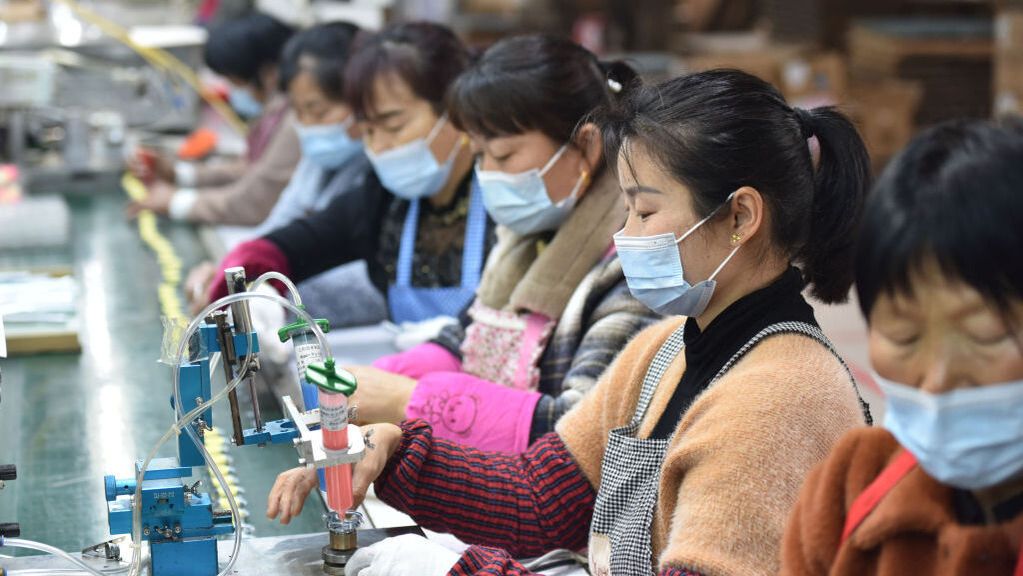Yiwu, China — As the world watches U.S. President Donald Trump reignite a trade war with China, exporters in the Chinese city of Yiwu appear unfazed. Amid soaring tariffs, many have turned their backs on the American market, opting instead to strengthen ties with countries in South America, the Middle East, and Africa.
At Zhongxiang Toys, one of the 75,000 shops in Yiwu’s sprawling wholesale market, owner Hu Tianqiang doesn’t mince words: “We don’t care about sales to the United States.” His stall, packed with toy jets, squeaky dogs, and robotic gadgets, sits at the frontline of what was once a booming export relationship.

In 2024, China exported $34 billion worth of toys, with approximately $10 billion going to the U.S. But now, Trump’s administration has imposed tariffs as high as 245% on many of these goods, citing market manipulation and national security concerns.
Rather than panic, Mr. Hu and fellow traders have adapted. “Other countries have money too,” he adds, now selling primarily to regions like South America and the Gulf. His colleague, Chen Lang, jokes, “Adding tariffs for [Trump] is like cracking a joke.”
The mood in Yiwu is notably defiant. According to Lin Xiupeng, a local toy trader, many businesses are declining U.S. orders outright. “The shop next to us cancelled a million-yuan order from an American buyer,” he says, citing the impact of the tariffs and regulatory instability.
While Trump’s policy has strained trade, its unintended consequence has been to diversify China’s export destinations. According to BBC reports, buyers from Dubai, Colombia, and South Africa are now regulars at the market. In response, salespeople are attending free Arabic and Spanish language classes to better connect with these new clients.
Oscar, a Colombian buyer seen filling bags with plush toys, affirms the global shift: “Doing business with China is very important. [With] the U.S. these days, less so.”
The economic data supports this trend. While China’s 2025 growth is forecast at 4.5%—short of the 5% target—Yiwu’s traders remain active. U.S. firms like Walmart and Target have reportedly warned the White House of “empty shelves and higher prices” looming over American consumers due to these disruptions.
At the same time, U.S. toy shop owners, like Jonathan Cathey in Los Angeles, are sounding alarms. “The tariffs are taking a hatchet to small businesses,” he said, noting that the toy industry may face a complete supply chain implosion. Shifting production out of China, he explains, is not easy: “Many of these Chinese businesses have spent 40 years perfecting their craft.”
Even as Trump suggests that a “fair deal” is being negotiated, China’s Commerce Ministry has dismissed such talk as “groundless.” Meanwhile, Chinese state media has intensified rhetoric, labeling Trump as “probably the worst president in American history.”
For many observers like former PLA Colonel Zhou Bo, Trump appears to be on a “crusade against the world.” But the biggest challenge for Beijing may lie not in Washington, but at home, where domestic consumption, housing markets, and financial confidence are all under pressure.
In Yiwu, however, the strategy is clear: move beyond Trump’s America. With diversified markets, adaptive language skills, and a confident stance, Chinese exporters are betting on a world far bigger than any single bilateral relationship.
As one local trader put it, “We are not lacking money. We are rich.”
These are free lessons offered by a local government association. Most of the students are women, dressed in their best to also impress their customers.
“These women are the backbone of trade across China,” says one stall holder, who is originally from Iran and is giving private lessons to an eager student.
“They’re doing these lessons to stay ahead of one another, to stay in competition.”
Most of the traders can already speak a few words of English. Now they say they need to greet their new buyers in Spanish and Arabic – a small but crucial sign of China’s shifting trade relationships.
Oscar, a Colombian who would only give us his first name, was wandering the halls of the market with bags filled with fluffy bunnies and bears.
He says the US-China trade war offers “many opportunities” for traders from other parts of the world.
“Doing business with China is very important,” he insists. “[Doing business with] the US these days, less so.”









